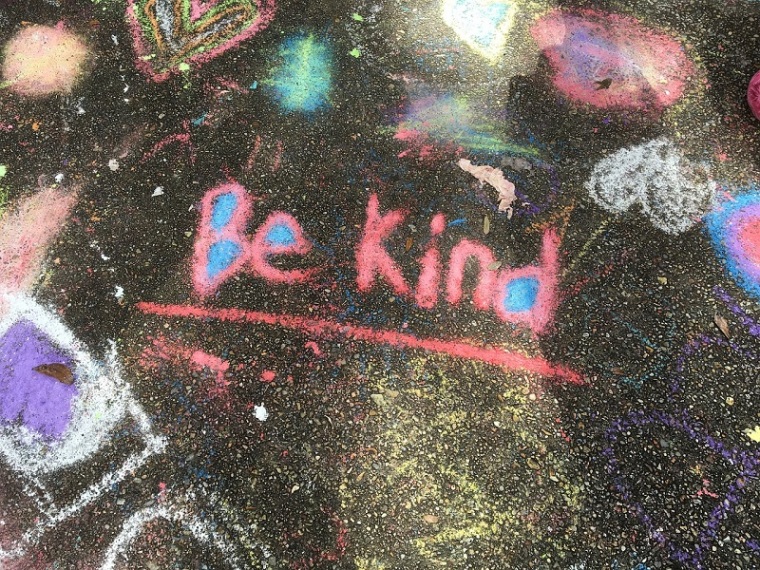

A hoarding disorder is a pattern of behaviour involving the excessive acquisition of and inability, or unwillingness, to discard large quantities of items that cover the living areas of a home.
Hoarding behaviour has been associated with health risks, impaired functioning, economic burden, and adverse effects on friends and family members. Hoarders are often conscious of their irrational behaviour but their emotional attachment to their objects far exceeds the motive to discard the items.
Now I know that most of you, having read the above, are probably thinking "That's not me"—looking up from your smartphone, as you walk to your desk to turn off your PC and flick off your two extra widescreen monitors, while double checking that your tablet and laptop are packed for tomorrow and your Apple watch/iPod/Kindle is fully charged—nope, no excessive acquisition of items here!
Or as you open your closet to pick tomorrow's outfit and have trouble deciding between your knee-high boots, cowboy boots, ankle boots, doc martins or maybe your Ugg boots; and whether or not you're going to wear your straight black jeans, or blue skinny jeans, or distressed boot leg jeans...guess it depends on the blouse, right? Nah uh! No irrational or emotional attachment to anything in here.
Clearly I am exaggerating the situation, right? It's not like we've spent hundreds or even thousands of dollars on our DVD, Blu-ray, PlayStation, X-Box, PC games and movie collections.
I mean it would be absolutely ludicrous to have so many cars parked in our driveways that it's a constant game of musical cars every time somebody tries to leave.
Now, I know what I have described is nowhere near to the clinical definition of compulsive hoarding; but just because you haven't got newspapers stacked from floor to ceiling or 10,000 empty jam jars stored in your bathroom, doesn't make you innocent.
Entrusted blessings
John Calvin once said, "All the blessings we enjoy are Divine deposits, committed to our trust on this condition, that they should be dispensed for the benefit of our neighbours."
Our medical mission trip team leader, Pastor Doug, spoke about the shame he felt when he looked at all of his "stuff" compared to the humble lives of the Filipino pastors who had joined our family camp.
He was talking about the number of TVs in our houses. The number of cars in our driveways. Cupboards full of 'Grandma's china', closets overflowing with clothes, shoes and bags. Drawers full of jewellery and makeup, designer sunglasses and watches. Tubs full of Lego, Barbie dolls, PlayStations, X-Boxes, Game-boys and the boxes of discarded phones and gadgets that still work fine—they're just not the latest, fastest model.
He was talking about the dragon's hoard of stuff that we believe we cannot live without!
Not only can we live without most it, we thrive spiritually without it. The further we move from consumerism the closer we move to God. Hebrews chapter 13, verse 5 states: "Keep your life free from love of money, and be content with what you have, for he has said, I will never leave you nor forsake you."
The Bible tells us that the more we give freely, the more we will receive (Proverbs chapter 11, verse 24) and that a generous man will prosper, and he who refreshes others will himself be refreshed (Proverbs chapter 11, verse 25).
So many of the Filipinos I met had very little, but they demonstrated a level of generosity so desperately lacking in our churches today, not only material possessions but also a generosity of self—in both service and time for others.
In truth, the churches we had an opportunity to work with reminded me greatly of the churches of Macedonia in 2 Corinthians chapter 8:
We want you to know, brothers, about the grace of God that has been given among the churches of Macedonia, for in a severe test of affliction, their abundance of joy and their extreme poverty have overflowed in a wealth of generosity on their part. For they gave according to their means, as I can testify, and beyond their means, of their own accord, begging us earnestly for the favour of taking part in the relief of the saints—and this, not as we expected, but they gave themselves first to the Lord and then by the will of God to us.
John Piper sums up the text with three simple statements:
- Grace comes down,
- Joy rises up,
- Generosity flows out.
Sometimes I think we get so caught up in accumulating what society wants us to "need" we forget that important, fundamental truth that God will generously provide all that we will need. And we will always have everything we need and plenty left over to share with others.
Unrestrained givers
When the churches of Macedonia wholly surrendered themselves to God, they were able to say to Paul "We're at your disposal. There is no way you can ask too much of us. How can we help?"
Can you even imagine the wealth that would pour forth from our homes, our churches if everybody approached giving like this?
So, how do we go from hoarders to unrestrained givers? Well that's easy: God, of course.
Give yourselves fully to the Lord; place all things spiritual and physical in his hands and say:
"Thank you Lord for your abundant blessing, all that I am and all you have given me, I give wholly unto you to do with as you will. Use me Lord, there is no way you can ask too much of me, show me how I can take these gifts and dispense them for the benefit of my neighbours."
And he will.
By day Rosie Timmins is AP Magazine's Social Media Coordinator and by night she is a media analyst at an international media monitoring company.
This article was first published on apmagonline.org
Rosie Timmins archive of articles can be viewed at http://www.pressserviceinternational.org/rosie-timmins.html